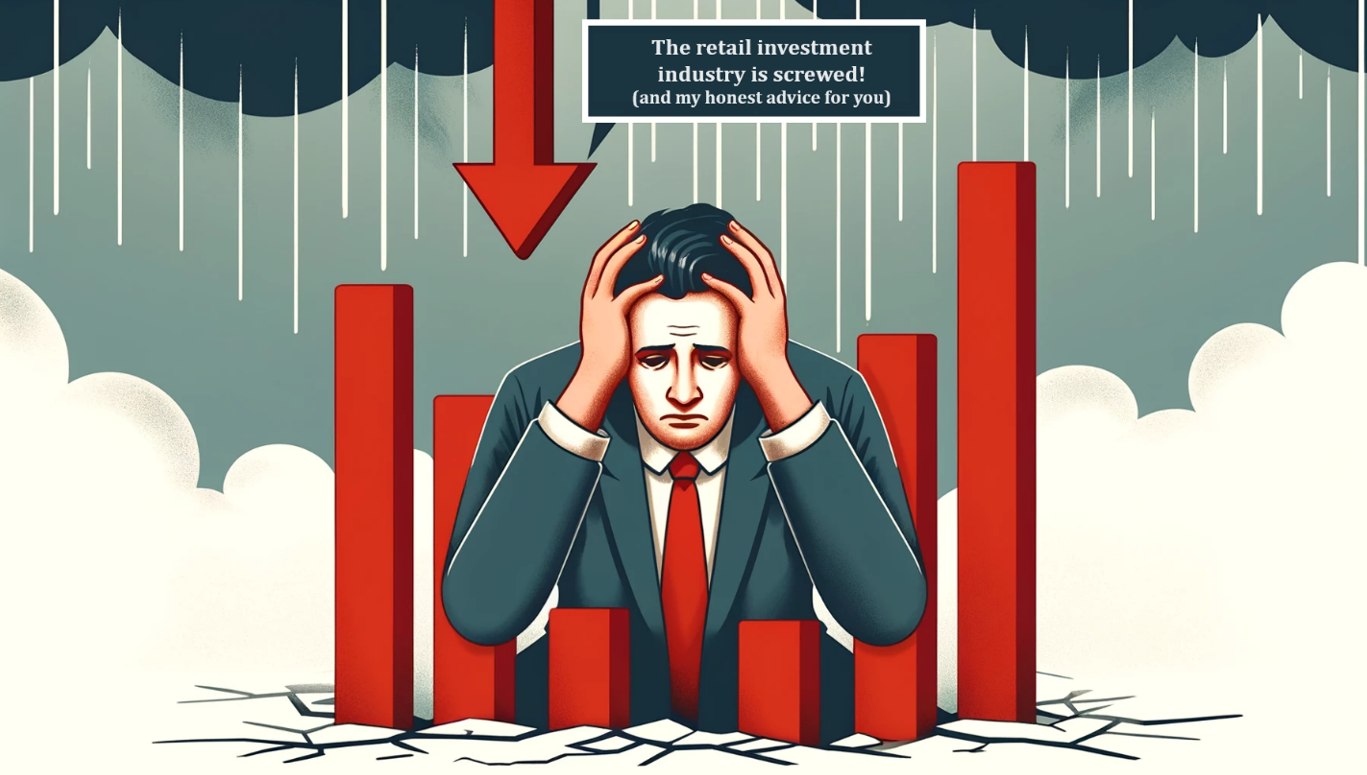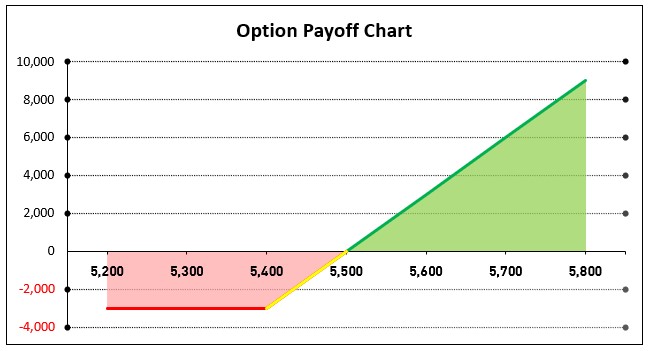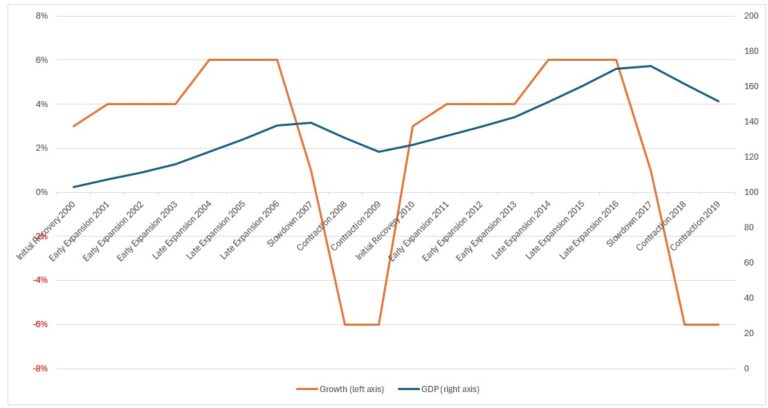Challenge me on this statement. I dare you. I beg you!
The retail investment industry is screwed!
Bold statement, especially for a guy that recently passed all CFA exams, has a deep passion for the stock market, and wants to earn some dough to pay for bread, live decently, and build wealth. Why am I saying this? Because I genuinely believe it’s true. Let me explain.
I myself have explored many strategies, educated myself, and tried to solve the market. In vain. Not just me, many brilliant individuals have tried and failed. Even Newton went broke on the stock market.
“I can calculate the motions of the heavenly bodies, but not the madness of the people.”
— exclaimed Sir Isaac Newton (reportedly) in 1720 after losing a fortune speculating on the direction of the stock market.
Why are we all trying? Because the prize is enormous. Just tell me and give me 100% certainty about any currency pair rate for tomorrow (or any other underlying asset) and I’ll sell my soul to the devil (just for one day), use the biggest leverage I can get, and will be a billionaire by tomorrow. There’s no exaggeration.
Let’s say EURUSD will be 1% higher tomorrow. If you leverage that information 1,000 times, a small investment could turn into a fortune. Gather all the cash you can find. Borrow what you can get. Find a broker to get 1:1000 leverage on that. Leverage your leverage, maybe you will manage to go 1:10,000, maybe 1:100,000. It means, tomorrow you will make 1,000x on this move! Invest 20 bucks, you will get 20k! Invest 100k, you will get 10 million! Invest 1 million and… You get the point. The potential is HUGE.
What if:
- You gathered even more capital?
- More leverage?
- Higher return?
- More returns?
All I need to know is the exact exchange rate, for 100%. Catch? No one knows! But everybody is trying to do so. Everyone is trying to be one step ahead of the crowd. Everyone is sifting through endless data points to find Alpha (above market return). This makes it almost impossible, certainly for a non-full-time and non-professional investor like a retail one.
The Paradox of Opportunity
You see the paradox? The huge potential is what attracts the best of the best, and any opportunity is exploited the second it arises. The huge opportunities are the reason there are really no opportunities at all. The enormous potential attracts the best minds, ensuring any opportunity is quickly exploited, leaving little room for the average investor.
Even professionals struggle.
According to the SPIVA report, a staggering 87% of professional funds fail to beat the market over a period of 10 years!
They fail to outperform the market, despite having vastly more resources, time, and education than you. What makes you think you will manage to pull this off?
My Honest Advice: Accept Market Returns
After all of my trials, I’m telling you—there’s no point in struggling for alpha. The best case for 99% of retail investors is market return. Just accept it.
Just buy cheap, broad equity ETF/index fund and ride the (bull) market
Living legend of investing and one of the richest persons in the world agrees with me (in fact, I agree with him). He consistently recommends investing in low-cost S&P 500 index funds. His reasoning? Over time, these funds outperform most actively managed investments due to their low costs and simplicity.

“By periodically investing in an index fund, for example, the know-nothing investor can actually out-perform most investment professionals. Paradoxically, when “dumb” money acknowledges its limitations, it ceases to be dumb.”
— Letter to the Shareholders of Berkshire Hathaway Inc., 1993.
“Over the years, I’ve often been asked for investment advice, and in the process of answering I’ve learned a good deal about human behavior. My regular recommendation has been a low-cost S&P 500 index fund.
A number of smart people are involved in running hedge funds. But to a great extent their efforts are self-neutralizing, and their IQ will not overcome the costs they impose on investors. Investors, on average and over time, will do better with a low-cost index fund than with a group of funds of funds.
The bottom line: When trillions of dollars are managed by Wall Streeters charging high fees, it will usually be the managers who reap outsized profits, not the clients. Both large and small investors should stick with low-cost index funds”
— Letter to the Shareholders of Berkshire Hathaway Inc., 2016.
“That’s the “what” of investing for the non-professional. The “when” is also important. The main danger is that the timid or beginning investor will enter the market at a time of extreme exuberance and then become disillusioned when paper losses occur. (Remember the late Barton Biggs’ observation: “A bull market is like sex. It feels best just before it ends.”) The antidote to that kind of mistiming is for an investor to accumulate shares over a long period and never to sell when the news is bad and stocks are well off their highs. Following those rules, the “know-nothing” investor who both diversifies and keeps his costs minimal is virtually certain to get satisfactory results. Indeed, the unsophisticated investor who is realistic about his shortcomings is likely to obtain better longterm results than the knowledgeable professional who is blind to even a single weakness.
My money, I should add, is where my mouth is: What I advise here is essentially identical to certain instructions I’ve laid out in my will. One bequest provides that cash will be delivered to a trustee for my wife’s benefit. (I have to use cash for individual bequests, because all of my Berkshire shares will be fully distributed to certain philanthropic organizations over the ten years following the closing of my estate.) My advice to the trustee could not be more simple: Put 10% of the cash in short-term government bonds and 90% in a very low-cost S&P 500 index fund. (I suggest Vanguard’s.) I believe the trust’s long-term results from this policy will be superior to those attained by most investors – whether pension funds, institutions or individuals – who employ high-fee managers.”
— Letter to the Shareholders of Berkshire Hathaway Inc., 2013
Let’s sum this up:
- Unsophisticated investor (large or small) should buy low-cost passive ETF for broad equity market (e.g. S&P 500 Index).
- Most investors (professionals too) underperform the market (mentioned S&P 500 Index). Any investor following passive ETF will beat them.
- He is so much convicted about this strategy that he laid this down in his will for managing the cash for his wife after his death – 10% stays in cash and 90% goes to very low-cost S&P 500 Index fund.
That approach has many benefits!
- Simple no-brain passive strategy to follow and outperform most of the market participants. You can’t screw that. Got the paycheck, take 10% of it or more, buy ETF. Done.
- You avoid high fees! The cheapest ETFs for S&P 500 have cost ratio as low as 0.09% (e.g. ticker SPY). Active strategies (or other passive but more sophisticated) may have 2% management fees – it will consume big chunk of the profits, it’s visible especially in long term investments.
- Time on the market, not timing the market – you follow monthly schedule for buying, no matter what. Stocks are falling? No panic, you are happy, you are able to buy more, because stocks are cheaper. Staying invested in the market over a long period typically yields better returns than attempting to predict market movements. Historically, markets have an upward trajectory over the long term, despite short-term volatility. You need immediate exposure.
- Diversification – yes! You buy entire stock market (S&P500), single stock problems are not a problem for you. Also, Index is doing selection work for you – weak stocks are excluded from the index and good ones are included. Best performers (e.g. Nvidia recently) are getting biggest share in the index and your results.
- Tax Efficiency– taxes are always tricky, unstandardized across the countries and individuals, also details matters a lot. However, in general passive investing is much more tax-efficient. Moreover, I suggest to invest in ETF accumulating one – dividends are not paid out to the investors, but rather reinvested within ETF. This means, no taxes paid until you sell the ETF! You can invest 40 years and not paid any taxes from dividend income or capital gains. (Keep in mind, some countries are discussing potential taxes on unrealized capital gains also – sic! – but this will hit everyone.).
The Real Cost of Active Investing
I know some will still try anyway to actively beat the market. What’s wrong with that? There’s some! Take a look:
- Cash drag.
Following above passive approach means: you got paycheck, you invest right away. You have money, you go to the market. Your time on the market is maximized. Once you actively trying to be better then market and timing the market, you need to hold some cash (and earn lower returns). You can try to hold no cash and just switch investment once better one show up, but your transaction costs double this way.
- Overconfidence, overtrading, overconcentration – game OVER!
Let’s talk about psychology (really). You say you can beat the market, right? Hm, why?
Let’s face the true. In most cases, you can’t. This is a fact. If you think you can, this is most probably due to overconfidence. This is known emotional bias and means: “investors demonstrate unwarranted faith in their own intuitive reasoning, judgment, and/or cognitive abilities.” (CFA Curriculum, Level 3, Year 2024 “Active Equity Investing: Strategies”). This bias leads to:
- Overtrading – you see so many opportunities (and partially you are forced to it to mitigate cash drag), so you trade them and trade them a lot. You pay excessive transaction costs, reducing your net returns and increasing the likelihood of making errors.
- Overconcentration – You place large bets on a few positions because you’re overly confident in your picks. This lack of diversification can lead to significant losses if those bets don’t pay off.
Overconfidence can be your downfall. Acknowledge it, address it, and don’t let it ruin your investment strategy.
- Taxes.
You picked correctly and sold your stock with solid profit? Congrats. Now you need to take some profits and pay taxes on that. That is less efficient than passive buy-and-hold.
Okey, but why exactly retail investment industry is screwed?
Building a house is nothing more than laying bricks and mortar
Buy a cheap broad market ETF every month and just hold it.
It doesn’t sounds like advice you’d be willing to pay for, does it? Yet, that’s the best investment advice. And that’s my advice for you. If you start meddling, you’ll likely miss market returns, succumb to FOMO buying or panic selling at the worst moments, incur higher taxes and transaction costs, and experience higher stress levels.
The core problem is: Simplicity Doesn’t Sell
Imagine you want to build a house and you consult construction experts – an engineer, a builder, etc. You ask them for advice, and they say, “Sir, just buy mortar and bricks. Lay a brick, put mortar on it, then another brick, and keep going like that. Don’t complicate things, because it will only get worse. Stick to this method and don’t change.”
It sounds absurd, doesn’t it? Building a house is a complex endeavor, requiring attention to critical aspects such as safety (e.g., ensuring water and electrical installations aren’t too close to each other) and other important issues (e.g., foundations, insulation, ventilation).
However, in the investments that’s how it is – the simplest solution is the best! And it can be summarized in one sentence.




